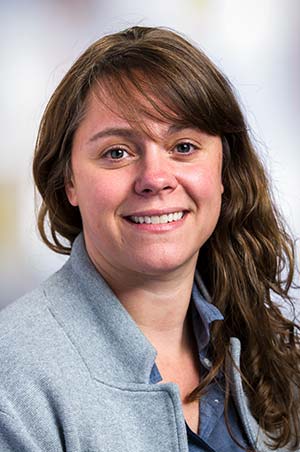Jennifer E. Adair, PhD
Associate Professor
Translational Science and Therapeutics Division, Fred Hutch
Member
Immunotherapy Integrated Research Center (IIRC), Fred Hutch
Member
Translational Data Science Integrated Research Center (TDS IRC), Fred Hutch
Fleischauer Family Endowed Chair in Gene Therapy Translation
Fred Hutch
Dr. Jennifer Adair is developing gene therapies that safely fine-tune the DNA sequences of blood stem cells to treat genetic disorders, HIV and cancers. Her goal is to develop safe, cost-effective and clinically relevant applications for gene therapy that can be implemented worldwide. To help reach this goal, Dr. Adair’s team developed a technology for portable gene therapy. Lab tests show the technology can produce genetically modified blood stem cells that are at least as good as those manufactured in highly specialized clean rooms, requiring less than half the staff. More recently, Dr. Adair developed a nanoparticle to deliver very precise DNA edits into blood stem cells. This technology greatly simplifies delivery of gene therapy and could pave the way for global availability. Dr. Adair also develops techniques to track and count genetically altered cells in living bodies. Tracking provides valuable information for understanding and improving gene therapies.
Other Appointments & Affiliations
Research Associate Professor, Division of Hematology and Oncology, University of Washington School of MedicineResearch Associate Professor, Division of Hematology and Oncology
University of Washington School of Medicine
Adjunct Associate Professor, Department of Laboratory Medicine & Pathology
University of Washington
Education
Washington State University, PhD, Genetics and Cell Biology (Summa Cum Laude)
Research Interests
Gene therapy in hematopoietic stem cells has emerged as a viable treatment for genetic, malignant and infectious diseases with the potential to significantly decrease global disease burden. However, the approach is unique to each disease target. The lessons learned from early clinical studies provide directives to overcome remaining barriers to mainstream clinical application of hematopoietic stem cell gene therapy
General areas of development include refining stem cell populations targeted for gene transfer, improving efficiency and engraftment, and creation and validation of globally portable gene transfer protocols
We use current state-of-the-art and newly developed technologies that bridge different scientific disciplines to translate gene therapy for each disease candidate into the most appropriate and widely available clinical approach
Clinical Expertise
Glioblastoma
Fanconi Anemia
HIV
Inherited immunodeficiencies
Non-malignant bone marrow failure disorders
